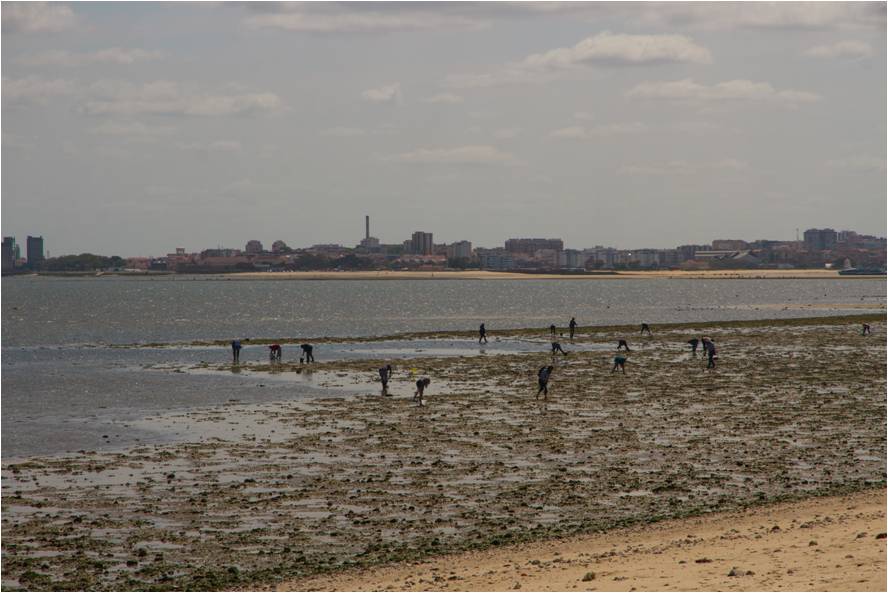
Ponta dos Corvos, Seixal, Portugal. During May, we could see dozens of people in the river Tagus gathering bivalves to be sold to businessmen. An extra family income but a serious problem of public health, due to the presence of dangerous levels of toxins or microbiological contamination.
According to the Institute of the Sea and the Atmosphere, the gathering of bivalves is forbidden in the estuary of Tagus, since 3rd May. By the end of the month, at the low tide, dozens of people continue entering the river, as we can see in the photo taken in Ponta dos Corvos, Seixal. This prohibition is due to the “the presence of levels of toxins or microbiological contamination over regular levels”.
Spades, spuds, rakes, hoes are some of the instruments used to gather bivalves from mud. Maria, who lives near this place, says that she gathers mainly Japanese-mussel. She is always attentive to the possible arrival of the authorities, since she knows that the activity is illegal. But it’s rewarding because “it’s an extra for the family income”.
There are many businessmen who buy these bivalves at a low price and introduce them in the market, which may cause problems of public health.
Colégio Valsassina, Lisbon, Portugal



You must be logged in to post a comment.